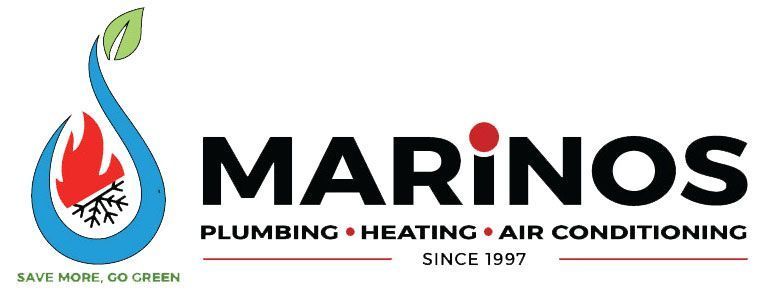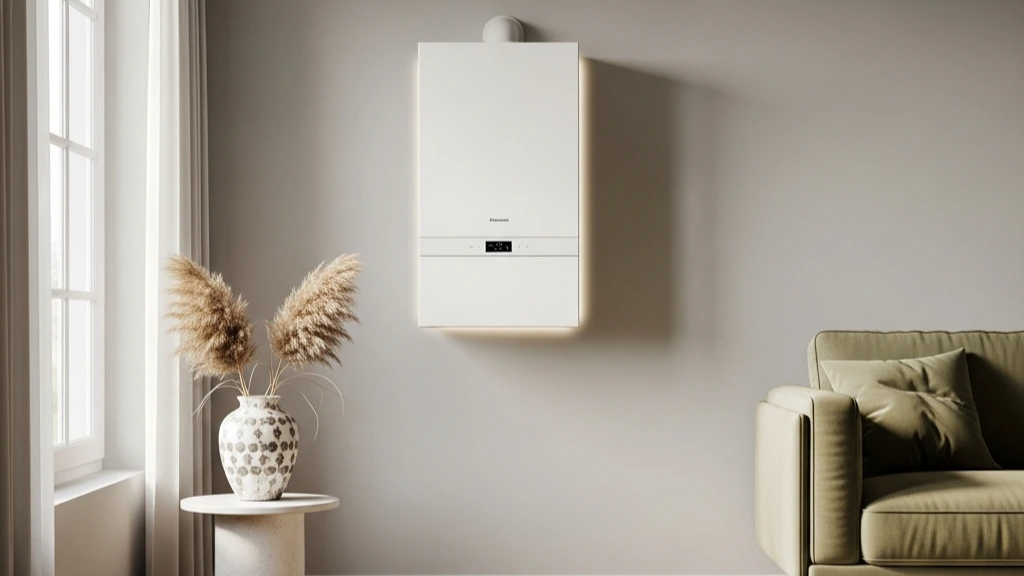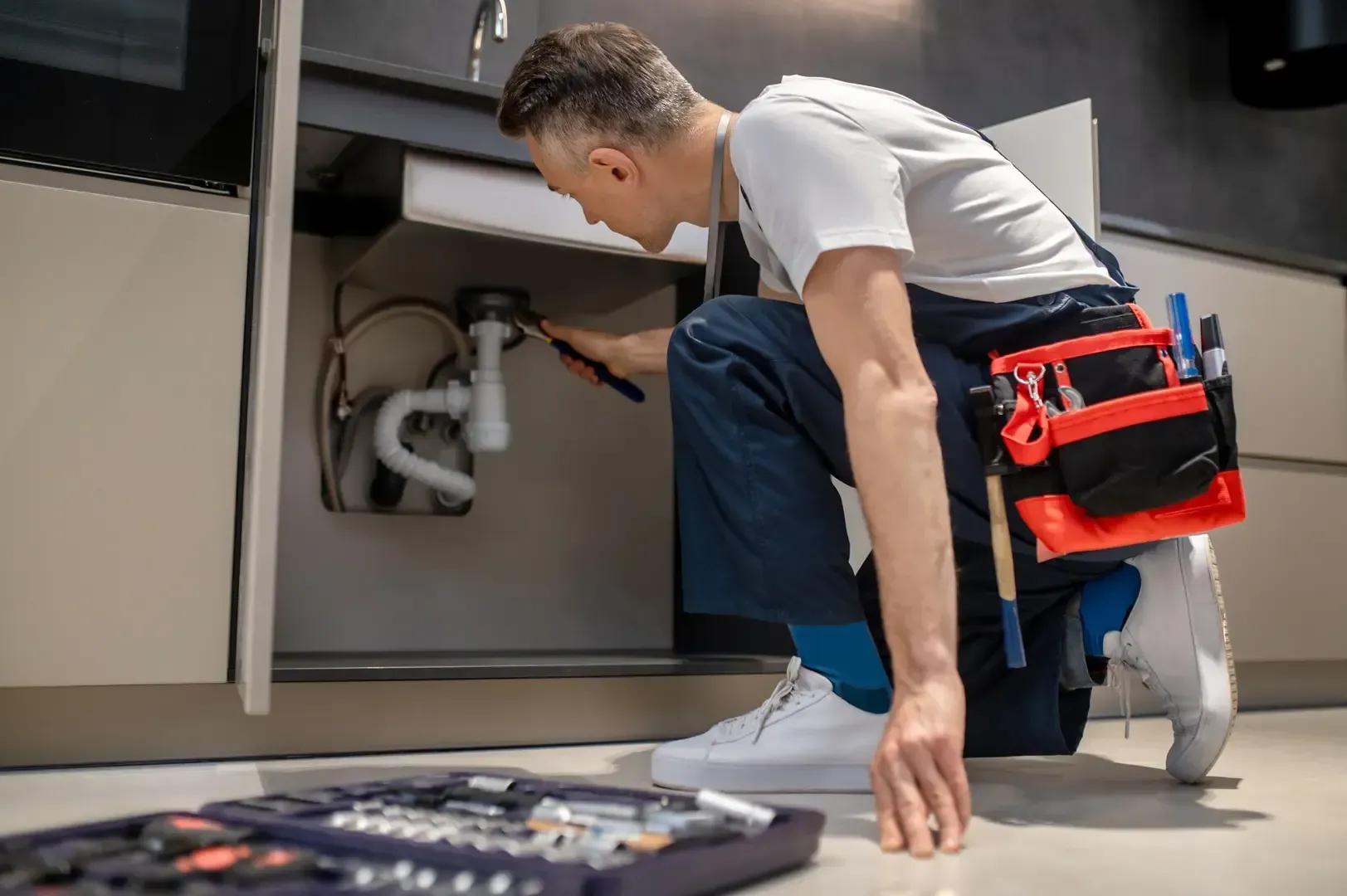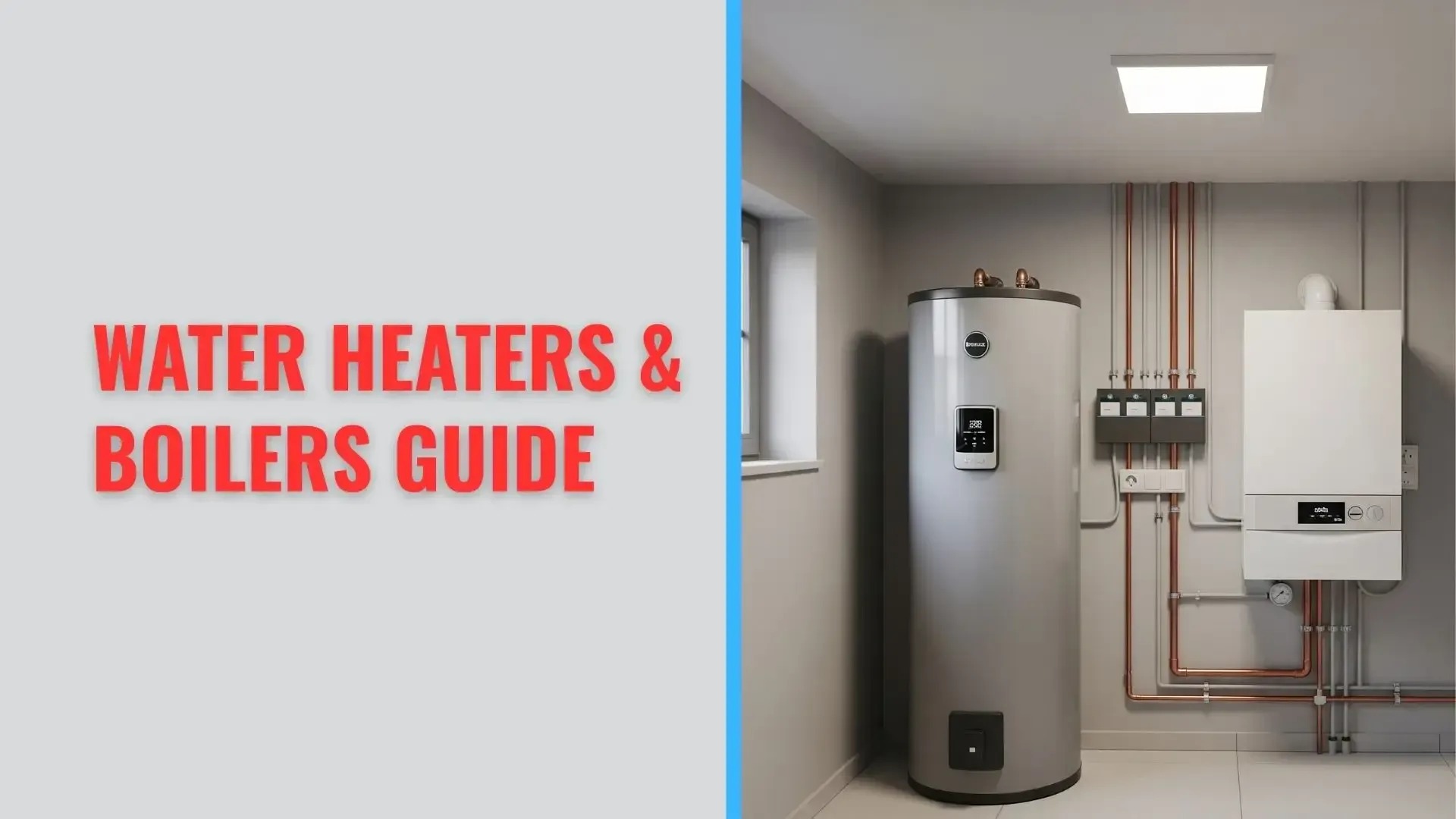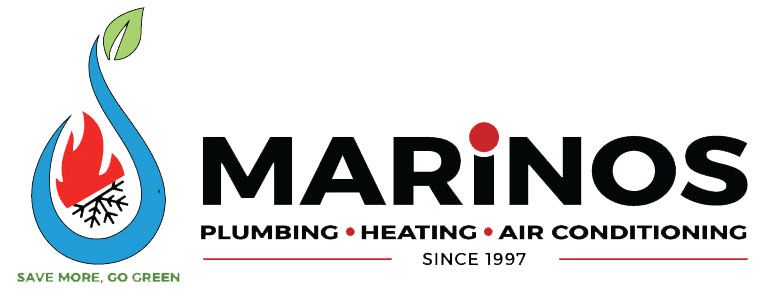Gas vs. Electric Hot Water Heaters: Which Is Best?
Hot water is one of those luxuries we often take for granted—until the day our water heater stops working. Whether it’s for a hot shower on a cold morning, cleaning dishes, or running laundry, hot water plays an essential role in everyday comfort.
At the center of it all sits the hot water heater, quietly working behind the scenes to ensure you never feel the shock of icy water.
But when it comes to choosing a water heater, the debate usually boils down to two main contenders: gas and electric. Each type has its own set of strengths, weaknesses, and ideal scenarios.
For homeowners making the decision, it’s not always easy to know which one truly fits their lifestyle, budget, and long-term needs.
In this guide, we’ll dive deep into the world of hot water heaters, comparing gas and electric models side by side. We’ll break down how each works, their costs, efficiency, safety, and overall performance.
By the end, you’ll have the clarity needed to decide whether a gas or electric hot water heater is the right investment for your home.
Why Hot Water Heaters Are Essential in Every Home
Imagine waking up on a chilly winter morning, stepping into the shower, and being greeted not with warmth but an icy blast.
That’s a quick reminder of just how much we depend on our hot water systems. Hot water heaters aren’t just appliances—they’re the unsung heroes of modern living.
Beyond the comfort of hot showers, hot water plays an important role in hygiene and sanitation. Washing dishes, cleaning clothes, and even simple handwashing all rely on consistent hot water.
A reliable water heater ensures you can maintain a clean home environment and reduce the spread of germs.
From a property value perspective, an efficient water heating system also increases the overall appeal of a home. Real estate agents often highlight updated or energy-efficient water heaters as selling points.
In fact, for potential buyers, the type of water heater can sometimes tip the scales between two otherwise similar homes.
Finally, choosing the right water heater also has long-term cost implications. Since water heating accounts for nearly 18% of a household’s energy use, your choice directly affects your monthly utility bills. With rising energy prices, efficiency and durability are more important than ever.
Overview of Gas and Electric Water Heaters
Gas and electric water heaters serve the same purpose—delivering hot water—but they do so in very different ways. A gas water heater uses natural gas or propane as fuel, while an electric water heater relies entirely on electricity.
Gas water heaters are typically faster when it comes to heating water, making them great for larger households with high hot water demand.
On the flip side, electric water heaters tend to be easier to install, more compact, and often considered safer since they don’t involve combustible fuel.
When choosing between the two, homeowners need to weigh several factors: upfront costs, installation requirements, operating costs, safety concerns, and environmental impact.
For example, while a gas unit might be cheaper to operate long-term, its initial setup could be more expensive if gas lines aren’t already in place. Conversely, an electric unit may cost more in monthly bills but offer greater convenience and fewer safety risks.
Understanding these differences up front helps homeowners make an informed decision. Now, let’s dive deeper into how each type of water heater works, starting with gas-powered models.
How Gas Water Heaters Work
Gas water heaters are the traditional choice for many households, and for good reason—they’re powerful, efficient, and have been around for decades. At their core, these heaters use a gas burner located at the bottom of the tank to heat the water.
When you turn on a hot water tap, cold water enters the tank, sinks to the bottom, and is heated by the burner. The resulting hot water rises to the top of the tank, ready to be delivered through your pipes.
One of the defining features of gas water heaters is their quick recovery rate. That means they can heat up a fresh supply of water much faster than electric models. This is especially beneficial for households with multiple people using hot water simultaneously—for showers, laundry, and dishwashing.
Gas water heaters also include key safety features such as a thermocouple, which shuts off the gas supply if the pilot light goes out, and a temperature-pressure relief valve to prevent overheating or excess pressure.
However, like any appliance, they come with trade-offs. While they’re faster and often cheaper to operate, they require proper ventilation to avoid carbon monoxide buildup, which adds complexity to installation.
Key Features of Gas-Powered Heaters
Gas water heaters come with a range of characteristics that make them appealing:
- Fast Heating Times – Perfect for larger families with high water usage.
- Lower Operating Costs – In areas where natural gas is cheaper than electricity, monthly bills are significantly lower.
- Durability – Many models last 10–15 years with proper maintenance.
- High Recovery Rate – Ideal for back-to-back showers and heavy hot water demand.
Yet, there are important considerations. These heaters require regular maintenance, including checking the pilot light and ensuring the venting system is clear. They also need space for proper installation, which isn’t always convenient in smaller homes or apartments.
For homeowners who already have a natural gas line, gas heaters often make the most sense. But if your home doesn’t have gas access, installation could quickly become a costly endeavor.
Pros and Cons of Gas Water Heaters
Like any major appliance, gas water heaters come with both benefits and drawbacks:
Pros:
- Quick recovery and consistent supply of hot water
- Lower operating costs in many regions
- Reliable performance, even during power outages
- Long lifespan with proper care
Cons:
- Higher upfront installation costs if gas lines aren’t in place
- Require regular maintenance and monitoring
- Safety risks such as gas leaks or carbon monoxide exposure
- Larger size compared to compact electric models
Gas water heaters are an excellent choice for households with high demand, but they aren’t the best fit for every situation. Before deciding, it’s worth comparing them to electric models, which bring their own unique advantages.
How Electric Water Heaters Work
Electric water heaters are simpler in design compared to their gas counterparts. Instead of using a flame to heat water, they rely on electric resistance heating elements—similar to the coils in an electric oven.
These elements are usually installed inside the tank, near the bottom and the middle, ensuring water heats evenly throughout.
When hot water is drawn from the tank, cold water flows in to replace it. The heating elements automatically kick on, bringing the water back to the set temperature. Since there are no flames, vents, or gas lines, electric water heaters are generally considered easier to install and maintain.
However, one key difference is the heating speed. Electric models tend to have a slower recovery rate, meaning they take longer to heat fresh water after heavy use. For small to medium households, this isn’t usually a problem.
But in larger families, running multiple showers and appliances back-to-back can quickly deplete the hot water supply.
Another point worth noting is efficiency. Electric heaters often achieve higher energy efficiency ratings since nearly all the electricity used goes directly into heating the water. Still, if electricity rates in your area are high, the operating costs may outweigh the efficiency benefits.
Key Features of Electric-Powered Heaters
Electric water heaters bring a host of features that make them attractive for certain households:
- Compact Size – Available in smaller models that fit in tight spaces like closets.
- Easy Installation – No need for gas lines or venting systems, reducing installation complexity.
- Lower Upfront Cost – Generally less expensive to purchase and set up than gas heaters.
- Safety – No risk of gas leaks or carbon monoxide poisoning.
- Quiet Operation – Electric heaters run almost silently compared to the whoosh of gas burners.
Electric models are also highly adaptable. They can be installed in homes without natural gas service and in apartments or condos where venting gas isn’t possible. Plus, they’re more eco-friendly if your electricity comes from renewable sources such as wind or solar.
The trade-off, of course, comes in monthly operating costs. If electricity is significantly more expensive than natural gas in your area, you may end up paying more in the long run.
Pros and Cons of Electric Water Heaters
Like gas heaters, electric water heaters have their fair share of strengths and weaknesses.
Pros:
- Easier and cheaper to install
- Compact and flexible placement options
- Higher energy efficiency ratings
- Safer with no combustion risks
- Low maintenance requirements
Cons:
- Slower recovery rate compared to gas heaters
- Higher monthly operating costs in regions with expensive electricity
- Limited hot water supply for large households
- Dependence on electricity—no hot water during power outages
For smaller households, condos, and apartments, electric heaters often make the most sense. They’re straightforward, safe, and affordable upfront. But for large families with high hot water needs, gas may still be the winner.
Cost Comparison Between Gas and Electric Water Heaters
When choosing between gas and electric, one of the biggest deciding factors is cost. But costs aren’t just about the sticker price—you need to consider purchase, installation, monthly bills, and long-term maintenance.
1. Initial Purchase Price:
- Electric water heaters generally cost less upfront, with standard models ranging from $300–$700.
- Gas water heaters are slightly more expensive, averaging $500–$1,000 depending on the size and brand.
2. Installation Costs:
- Electric units are simple to install, usually costing around $200–$500.
- Gas units can cost $500–$1,500 to install, especially if new gas lines or venting systems are required.
3. Operating Costs:
- Gas is usually cheaper per unit of energy, so monthly bills are often lower for gas heaters.
- Electric heaters tend to cost more monthly, especially in areas with high electricity rates.
4. Repair and Maintenance:
- Electric heaters have fewer parts and lower maintenance costs.
- Gas heaters may need regular servicing to check vents, burners, and pilot lights.
Over 10–15 years, the total cost difference can be substantial. For example, while an electric heater might save you upfront, a gas heater may pay for itself in lower utility bills if you use a lot of hot water.
Energy Efficiency and Environmental Impact
Energy efficiency is a critical factor for homeowners who care about both costs and sustainability.
Efficiency Ratings:
- Electric heaters typically boast efficiency ratings of 90% or higher, since nearly all the energy goes into heating water.
- Gas heaters usually hover around 60–70% efficiency due to heat loss through vents.
Environmental Considerations:
- Gas heaters release carbon emissions, making them less eco-friendly.
- Electric heaters are cleaner at the point of use, but their true environmental impact depends on how your electricity is generated. If it comes from coal, emissions may be higher than expected. If it comes from renewables, electric heaters become much greener.
Impact on Utility Bills:
- Gas heaters are usually cheaper to run month-to-month in most regions.
- Electric heaters may cost more, but energy-efficient households or homes with solar power can offset the difference.
In short, if your main concern is reducing your carbon footprint, electric heaters paired with renewable energy sources are the best option. If cutting costs is your top priority, gas may still have the edge—especially in areas with affordable natural gas.
Performance and Reliability
When investing in a water heater, you’re not just buying an appliance—you’re buying peace of mind. Reliability and performance are at the top of every homeowner’s list.
Heating Speed and Recovery Rate
Gas water heaters typically outperform electric models when it comes to heating speed. Their burners deliver intense heat that warms water quickly, making them ideal for families with back-to-back showers or simultaneous laundry and dishwashing needs.
Electric heaters, while efficient, heat at a slower pace. If your household regularly drains the tank, you may find yourself waiting longer for hot water to replenish.
Lifespan of Gas vs. Electric Water Heaters
On average, electric water heaters last longer than gas ones. A typical electric model runs for about 12–15 years, while gas heaters last around 8–12 years.
Why the difference?
Gas heaters operate at higher temperatures and have more components that wear out over time, such as burners and vents.
Reliability in Different Climates
Climate also plays a role. In colder regions, gas heaters perform better since they can heat water faster, even when incoming water is icy cold. Electric heaters may struggle a bit in these conditions, taking longer to warm up water.
On the other hand, electric heaters are often more reliable in areas prone to power outages—provided the outage is rare and short-lived, since they can’t operate without electricity.
Bottom line: If you need speed and power, gas wins. If you’re after longevity and low maintenance, electric takes the crown.
Safety Considerations
Safety is a huge deciding factor for many homeowners, and both gas and electric water heaters come with built-in protections—but also some risks.
Safety Features in Gas Water Heaters
Gas heaters come with flame arrestors, thermocouples, and pressure relief valves to prevent dangerous situations. However, they require proper ventilation to avoid carbon monoxide buildup. Gas leaks are also a potential hazard, and regular inspections are necessary to ensure safety.
Safety Features in Electric Water Heaters
Electric heaters eliminate combustion risks altogether. They’re equipped with thermostats and high-limit switches to prevent overheating. Because they don’t use flammable fuel, the risks of fire or carbon monoxide poisoning are virtually nonexistent.
Risks and Preventive Measures
- Gas Heaters: Risk of gas leaks, fire, and carbon monoxide exposure. Preventive steps include annual inspections, installing CO detectors, and ensuring proper ventilation.
- Electric Heaters: Main risks are electrical shorts or overheating. Preventive steps include checking wiring connections and using surge protectors.
If safety is your top concern, electric heaters are generally the safer option. But with proper installation and maintenance, gas heaters can also be used safely for years.
Space and Installation Requirements
The physical space and installation process can often sway a homeowner’s decision.
Space Needs for Gas Water Heaters
Gas heaters are typically larger and require ventilation systems, meaning they need to be placed in garages, basements, or utility rooms. You’ll also need clearance space for airflow and safety.
Space Needs for Electric Water Heaters
Electric models are compact and don’t need vents, making them perfect for small apartments, closets, or tight corners. Tankless electric units take up even less room, sometimes mounting directly on walls.
Installation Complexity
- Gas heaters require professional installation with plumbing, venting, and sometimes extensive modifications if gas lines aren’t already present.
- Electric heaters are simpler and cheaper to install. In most cases, you only need access to a 240V outlet and proper water connections.
Suppose you’re short on space or looking for hassle-free installation, electric wins. If you already have a gas setup, though, sticking with gas may be the smoother path.
Best Situations to Choose Gas Water Heaters
Gas water heaters aren’t for everyone, but in the right scenario, they’re unbeatable.
Ideal Household Scenarios
- Large families that use a lot of hot water daily
- Homes with multiple bathrooms and appliances running at once
- Households that value faster recovery rates
Geographic Considerations
Gas heaters are ideal in colder regions where incoming water temperatures are lower. They’re also cost-effective in areas where natural gas is cheaper than electricity.
Long-Term Value
Though the upfront cost is higher, gas water heaters can save you money in operating costs over the years. They’re especially beneficial for homes with existing gas infrastructure.
If your family often argues about “who used all the hot water,” a gas heater could be your peacekeeper.
Best Situations to Choose Electric Water Heaters
Electric water heaters shine in different scenarios and are often the smarter choice for modern homes.
Ideal Household Scenarios
- Small to medium households with moderate hot water needs
- Apartments, condos, or homes with limited space
- Households prioritizing safety and low maintenance
Geographic Considerations
Electric heaters perform well in warmer climates where incoming water doesn’t require extreme heating. They’re also a great option in areas without natural gas infrastructure.
Long-Term Value
If your electricity comes from renewable sources like solar panels, electric heaters become highly cost-effective and eco-friendly. Their longer lifespan and lower maintenance requirements also add long-term value.
For households looking for convenience, safety, and flexibility, electric water heaters are often the best fit.
Hybrid Options and Alternatives
The debate between gas and electric water heaters often overlooks a third category: hybrid and alternative options. These solutions blend technology, energy efficiency, and modern convenience for households looking beyond the traditional choices.
Tankless Water Heaters
Tankless models, sometimes called on-demand water heaters, skip the storage tank altogether. Instead, they heat water only when you turn on the tap. Gas and electric versions are available, and both save space while providing endless hot water.
The downside? Higher upfront costs and the need for proper sizing to handle household demand.
Solar-Powered Water Heaters
For eco-conscious homeowners, solar water heaters offer the ultimate in sustainability. They use solar panels to capture energy from the sun, dramatically cutting utility bills.
While the initial investment is steep, tax incentives and long-term savings often make them worthwhile. The catch is weather—cloudy days may require a backup heating source.
Heat Pump Water Heaters
Heat pump models (sometimes called hybrid water heaters) use electricity, but instead of directly generating heat, they move it from the air or ground into the water. This makes them two to three times more energy-efficient than standard electric heaters. However, they’re bulkier and more expensive upfront.
These alternatives may not be right for everyone, but they’re worth considering if you’re planning for the future, especially as energy costs rise and sustainability becomes a priority.
Common Myths About Gas and Electric Water Heaters
When it comes to water heaters, misinformation is everywhere. Let’s clear up some of the most common myths.
Myth 1: Gas Water Heaters Are Always Cheaper
Not true. While operating costs are lower in many areas, gas heaters often have higher installation and maintenance costs. If you don’t already have gas lines, electricity might actually save you money.
Myth 2: Electric Water Heaters Can’t Keep Up With Demand
This depends on household size. While electric models heat more slowly, newer high-capacity units can meet the needs of medium households without issue.
Myth 3: Gas Water Heaters Are Unsafe
Modern gas heaters come with multiple safety features. With proper maintenance and ventilation, they’re safe to operate.
Myth 4: Electric Water Heaters Are Always More Eco-Friendly
Not necessarily. If your electricity comes from coal, your carbon footprint may be higher than with gas. On the flip side, if you use renewables, electric heaters become the greener choice.
Myth 5: Bigger Tanks Are Always Better
Oversized tanks waste energy keeping unused water hot. The key is choosing the right size for your household, not the biggest tank available.
By separating fact from fiction, homeowners can make smarter, more confident decisions.
Tips for Choosing the Right Water Heater for Your Home
Choosing the right water heater isn’t just about picking gas or electric—it’s about matching your lifestyle and budget.
Assess Household Needs
Count the number of bathrooms, family members, and appliances that use hot water. If you’re a family of five, a fast-recovery gas heater might be best. If you’re a couple in an apartment, electric could be perfect.
Evaluate Budget and Costs
Look beyond the purchase price. Factor in installation, monthly bills, and maintenance costs over the heater’s lifespan. Sometimes, paying more up front saves thousands in the long run.
Consider Long-Term Sustainability
Think about energy sources in your area. Do you have access to cheap natural gas? Are you planning to install solar panels? Your future energy strategy should influence your choice.
Don’t Forget Maintenance
Gas heaters need regular checks for leaks and venting, while electric models require minimal upkeep. Be realistic about how much maintenance you’re willing to do—or pay for.
Get Professional Advice
A licensed plumber can assess your home’s infrastructure and recommend the best fit. They’ll consider factors like water usage patterns, energy costs, and available space.
By following these tips, you’ll choose a water heater that balances cost, comfort, and convenience for years to come.
Maintenance Tips for Both Gas and Electric Water Heaters
No matter which type you choose, proper maintenance is the key to extending your water heater’s life.
Routine Maintenance Tasks
- Flush the tank once or twice a year to remove sediment buildup.
- Test the pressure relief valve for safety.
- Inspect anode rods in tank heaters to prevent rust and corrosion.
- Check the thermostat settings (120°F is recommended for safety and efficiency).
Signs Your Heater Needs Repair
- Inconsistent water temperature
- Strange noises like popping or rumbling
- Rust-colored water
- Water is pooling around the base of the unit
How to Extend Lifespan
Gas heaters benefit from annual professional inspections, while electric models should have wiring connections checked periodically. Keeping up with these tasks can add years to your unit’s lifespan and prevent costly breakdowns.
Conclusion
So, gas or electric—who wins? The answer depends on your household’s needs, budget, and priorities.
- If you have a large family, a high hot water demand, and access to cheap natural gas, a gas water heater is likely your best bet.
- If you live in a smaller space, value safety, or want an eco-friendly option—especially if you have renewable energy—electric is the way to go.
Both have strengths, both have weaknesses. The key is choosing the one that best aligns with your lifestyle. And if neither seems perfect, hybrid and alternative options may give you the best of both worlds.
Whatever you choose, remember this: a well-maintained water heater, gas or electric, is a long-term investment in comfort, convenience, and peace of mind.
FAQs
1. Which type lasts longer, gas or electric water heaters?
Electric heaters typically last 12–15 years, while gas models last around 8–12 years due to higher operating temperatures and additional components.
2. Which is more energy efficient?
Electric water heaters are generally more energy efficient, converting almost all electricity into heat. However, operating costs depend on local utility rates.
3. Are electric water heaters safer than gas?
Yes, in most cases. Electric heaters don’t carry risks of gas leaks or carbon monoxide, though both types are safe when properly maintained.
4. What’s the average lifespan of each type?
Electric: 12–15 years.
Gas: 8–12 years.
5. Can I switch from gas to electric or vice versa?
Yes, but it can be costly. Switching from electric to gas may require new gas lines and ventilation. Going from gas to electric may require upgrading electrical panels.
